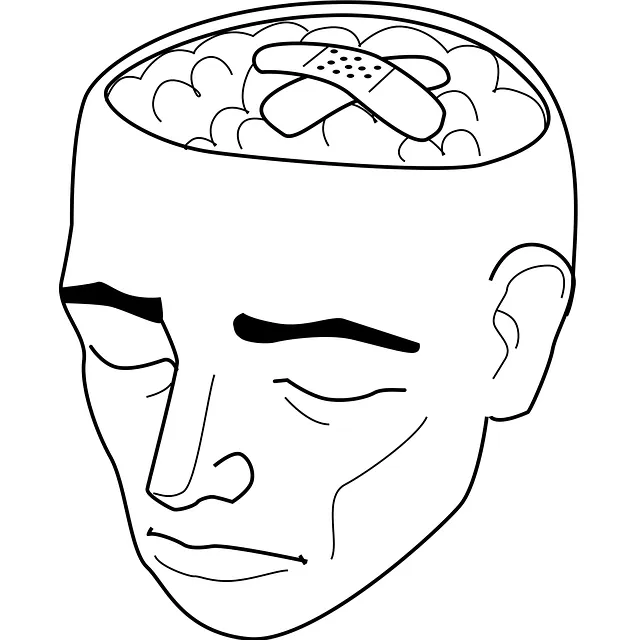Trauma, a complex issue with lasting mental effects, can be effectively managed through Kaiser Trauma Therapy, an evidence-based holistic approach developed by Dr. Frederick S. Lewis. Combining traditional talk therapy with innovative techniques like mindfulness meditation, this method targets root causes of PTSD symptoms such as flashbacks, nightmares, and avoidance behaviors. Techniques like cognitive processing therapy help individuals safely reintroduce traumatic memories into their life story, fostering resilience and long-term mental well-being. A safe space, whether at home or incorporating nature, supports practices like meditation and mindfulness, often paired with alternative holistic therapies like yoga, art, and music therapy for comprehensive healing. Kaiser Trauma Therapy's non-pharmacological focus prioritizes the mind-body connection, offering a preferred natural remedy for PTSD management while building resilience through coping strategies including relaxation techniques, deep breathing, and creative outlets.
Find solace and healing after traumatic experiences is a journey towards reclaiming your life. This article explores various paths to recovery, focusing on the profound benefits of Kaiser Trauma Therapy. We delve into understanding the impact of trauma, creating safe spaces for healing, and employing evidence-based techniques. Additionally, discover strategies for building resilience and nurturing self-care practices for lasting wellbeing. By the end, you’ll be equipped with valuable insights for navigating your unique healing journey, including the key role that Kaiser Trauma Therapy can play.
- Understanding Trauma and Its Impact
- The Role of Kaiser Trauma Therapy
- Creating a Safe Space for Healing
- Exploring Evidence-Based Techniques
- Building Resilience and Coping Strategies
- Nurturing Self-Care Practices for Lasting Wellbeing
Understanding Trauma and Its Impact

Trauma is an overwhelming experience that can leave profound and lasting effects on an individual’s mental and emotional well-being. It’s important to understand that trauma isn’t simply a one-time event; it can manifest as a complex interplay of past experiences, often leading to conditions like post-traumatic stress disorder (PTSD). Symptoms of PTSD can include flashbacks, nightmares, intense emotions, and avoidance behaviors, all of which significantly impact daily life.
The Kaiser approach to trauma therapy recognizes these challenges and offers evidence-based strategies for symptom reduction. Alternative therapies, such as mindfulness meditation, have also proven effective in helping individuals process traumatic events. By combining traditional talk therapy with innovative techniques, this holistic approach aims to foster healing and resilience.
The Role of Kaiser Trauma Therapy

Trauma is a profound and complex experience that can leave individuals feeling overwhelmed and struggling to find emotional balance. This is where Kaiser Trauma Therapy steps in as a powerful tool for healing. Developed by Dr. Frederick S. Lewis, this innovative approach focuses on addressing the root causes of trauma, offering a non-invasive method to process and resolve past traumas effectively.
By utilizing various techniques, including cognitive processing therapy, Kaiser Trauma Therapy helps individuals re-experience traumatic memories in a safe and controlled environment. This process allows for the integration of these memories into one’s life story, reducing their power and impact over time. It empowers survivors to take back control, fostering resilience and promoting long-term mental well-being. Many have found this alternative medicine approach to be transformative, providing an effective alternative to conventional treatments for post-traumatic stress disorder (PTSD).
Creating a Safe Space for Healing

Creating a safe space is an essential step in the journey to find solace and healing, especially for those dealing with trauma. This can be achieved through various means, such as incorporating elements of nature or designing a dedicated sanctuary within your home. Many find comfort in surrounding themselves with plants, soft lighting, and soothing colors, creating a calming environment that supports their emotional well-being. Establishing this safe space encourages individuals to engage in practices like meditation, mindfulness exercises, or journaling, all of which are backed by research as effective kaiser trauma therapy techniques.
Additionally, this dedicated area can serve as a hub for exploring holistic treatment methods, including mind-body techniques tailored to address PTSD symptoms. Non-invasive trauma recovery approaches, such as yoga, art therapy, or music therapy, can be seamlessly integrated into the safe space routine, offering alternative ways to process and release traumatic memories. By combining traditional kaiser trauma therapy with these innovative practices, individuals can embark on a holistic journey towards healing and restoration.
Exploring Evidence-Based Techniques

In the quest for solace and healing, many individuals are turning to evidence-based techniques that offer a holistic approach to addressing trauma and its lasting effects. Kaiser trauma therapy, a well-recognized method, focuses on helping people process and overcome traumatic experiences. This form of therapy has shown promising results in treating post-traumatic stress disorder (PTSD) by encouraging clients to confront and reframe their memories, thus fostering healing.
Non-pharmacological approaches, such as kaiser therapy for childhood trauma, have gained prominence as effective alternative therapies for PTSD in adults. These methods prioritize the mind-body connection, offering techniques like mindfulness meditation, eye movement desensitization and reprocessing (EMDR), and cognitive behavioral therapy (CBT). By employing these strategies, individuals can experience profound healing without relying solely on medications, making it a preferred choice for those seeking natural remedies for PTSD.
Building Resilience and Coping Strategies

Building resilience and developing effective coping strategies are essential steps in finding solace and healing from post-traumatic stress disorder (PTSD). Kaiser trauma therapy emphasizes this holistic approach, offering various techniques to empower individuals in managing their condition. Through therapy sessions, one can learn to confront and process traumatic memories, replacing negative thought patterns with healthier alternatives. This process helps in developing a sense of control and emotional regulation.
Resilience is nurtured by incorporating alternative therapies for PTSD in adults alongside traditional treatment methods. Self-help for complex PTSD includes engaging in activities that promote relaxation, such as meditation and deep breathing exercises, which have been shown to reduce symptoms and enhance overall well-being. Additionally, exploring natural remedies can offer a sense of calm and support the healing process; however, it’s important to consult healthcare professionals before attempting any alternative treatments to ensure safety and effectiveness.
Nurturing Self-Care Practices for Lasting Wellbeing

In the journey towards finding solace and healing, nurturing self-care practices are paramount to fostering lasting wellbeing. Incorporating mind-body techniques for trauma victims, such as those offered by Kaiser trauma therapy, can be transformative. These approaches go beyond traditional talk therapy, delving into the profound connection between our thoughts, emotions, and physical sensations. Practices like meditation, yoga, and deep breathing exercises not only help in managing symptoms of PTSD in adults but also create a sanctuary for the mind and body to heal.
Alternative therapies for PTSD in adults can offer a fresh perspective on dealing with trauma without therapy. Techniques such as art therapy, music therapy, and even nature walks provide creative outlets for processing emotions and memories. By engaging in these self-care activities consistently, individuals can cultivate resilience, promote emotional balance, and ultimately, embark on a path of profound personal growth and healing.
In navigating the complex landscape of healing from trauma, it’s evident that a multifaceted approach is key. By understanding the profound impact of trauma and adopting evidence-based techniques, individuals can foster resilience and find solace. The article has explored various strategies, from the transformative power of Kaiser Trauma Therapy to creating safe spaces and nurturing self-care practices. Integrating these insights can empower folks to embark on a journey of healing, ultimately enhancing their ability to thrive.






